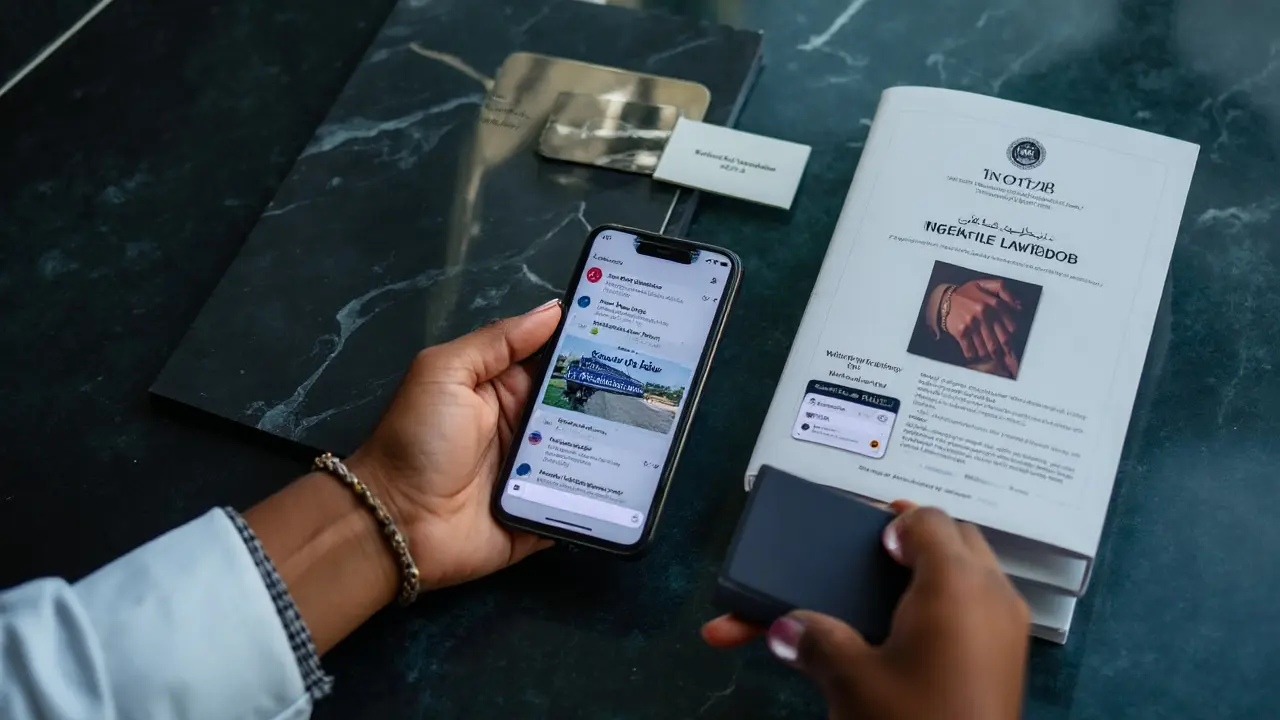People click on this topic expecting straight talk. Here it is: Dubai’s nightlife is glossy, social, and tightly regulated. Women who work around this scene - from independent companions to promo models and club hostesses - say the city rewards respect and discretion, and it punishes reckless behavior. They also say most problems start when someone ignores the law, pushes boundaries, or trusts the wrong pitch online. If you’re trying to understand how things really work, not a fantasy version, this is for you.
I live here with my kid, Remy, so I’m biased toward safety and common sense. For this guide, I spent late nights in Marina, DIFC, and Business Bay speaking with women who actually do the work. Their ask was simple: capture reality, center consent, and spell out the risks clearly. Consider this a clear-eyed map, not an invitation to break laws.
Direct answer and key takeaways
Short version for readers who want the essentials first.
- Dubai laws are strict. Sex work and solicitation are illegal under UAE Federal Decree-Law No. 31 of 2021. If you’re picturing a simple “book and go,” you’re picturing a legal problem, not a plan.
- What workers here stress most: consent, boundaries, and respect. No code words, no negotiations about illegal acts. If anyone suggests that, step away.
- Scams flourish online. Deposits, ID selfies, or hotel room numbers sent in advance are classic traps that lead to theft, blackmail, or worse. If it feels rushed or secretive, it’s probably a setup.
- Hotels in Dubai usually require valid ID for all guests, and many enforce strict visitor policies. Expect checks and zero tolerance for trouble.
- Safer choices exist. If you want nightlife and conversation, choose licensed venues, public spaces, and above-board entertainment. Keep interactions respectful and platonic.
Why this matters now: It’s 2025, and the combination of social media DMs, instant payments, and deepfake blackmail means mistakes get punished fast. Women working in the scene, especially migrants, carry the highest risk. Treat people like humans first, and treat the law as non-negotiable.

What Dubai escorts actually say: context, laws, boundaries, safety
Let’s start with the language. In Dubai, “escorts,” “promo models,” and “club hostesses” get used interchangeably by outsiders, but they’re not the same. Promo models and hostesses work for licensed venues, on the books, focused on hospitality and sales. Independent companions operate in a gray, often illegal area. The women I interviewed asked to keep labels simple: they work in adult-adjacent hospitality, and they want clients - and the curious - to understand the rules of engagement.
On laws and reality. Everyone I spoke with brought up the same anchor: the UAE penal code and cybercrime laws. Prostitution and solicitation are crimes. Sharing explicit content, running blackmail schemes, or distributing someone’s private images also fall under the cybercrime framework. If your plan relies on breaking those rules, that’s not nightlife, it’s legal jeopardy. The point isn’t fear. It’s clarity.
Culture and setting shape everything. In Dubai, discretion beats bravado. Loud interrogations about “services,” drunk behavior at hotel lobbies, and phone cameras out in private spaces are fast ways to end the night. In places like DIFC, Marina, Palm Jumeirah, or City Walk, you’ll notice a pattern: polished, public, and professional. Women say the best clients are calm, clear about time and boundaries, and respectful of privacy.
Boundaries and the no-list. Here is the line, as they put it:
- No explicit talk about illegal acts. Don’t test it. Don’t hint. Don’t code-word it.
- No surprise touching, no “just a minute” detours, no phone grabbing. That veers into harassment or worse.
- No filming or photographing someone without permission. In the UAE, that can be a criminal offense.
- No sharing of IDs, passports, or private data. Women get doxxed too. This cuts both ways.
How scams actually look in 2025. A common pattern starts with a DM from a “model” with high-gloss photos. She asks for a small deposit to “confirm” or a selfie with your passport to “verify.” You send it, then get hit with threats to message your employer or family. Another version directs you to a hotel room number that doesn’t exist while someone else lifts your wallet in the lobby confusion. If money moves before you meet in a public, licensed setting, you’re rolling the dice.
Hotel reality. Many upscale hotels accept registered guests only and require original ID for visitors. Security teams monitor lobbies and elevators. If you try to sneak around the rules, expect to be stopped or escorted out. If someone pressures you to bypass hotel policy, assume they’re either inexperienced or up to something.
What workers say makes interactions safer for everyone:
- Keep it public and licensed. Restaurants, lounges, and bars with entertainment licenses exist for a reason.
- Be upfront about time and intent in non-graphic terms. “I’m looking for company for dinner and conversation between 8 and 10” is clear. Don’t push it further.
- Bring only what you need. Flashing stacks of cash or luxury watches invites problems.
- Mind your digital footprint. No deposits via shady links, no sharing of personal documents, no explicit messages.
- If anything feels off, leave. Not every vibe is a fit. You don’t owe anyone a second chance.
Human side of the work. Several women described the best nights as easy and light - dinner, music, conversation, then separate taxis. They talk about clients who respected time, tipped fairly for hospitality, and didn’t overstep. They also remember the worst nights clearly: drunk bargaining, graphic demands, cameras pulled out without consent. The difference is one thing: respect.
If you’re a visitor vs a resident. Tourists often underestimate laws or assume “what happens in Dubai stays in Dubai.” That’s not how this city works. Residents usually understand the reputational and visa risks and tend to be more cautious. Whichever you are, the same rules apply. Don’t gamble your freedom or someone else’s safety for a story.
A word on safety for the women. The workers I met put safety ahead of everything. They travel in pairs, share live locations, and avoid closed rooms with new people. They choose public lounges in Marina or Business Bay over unknown apartments. They walk if the vibe shifts. If you’re interacting with them, understand why those guardrails exist and support them.
Costs and the myth of transparency. You’ll see wild price claims online. Treat them as marketing, not facts. Real professionals talk about time, not acts, and they don’t discuss anything illegal. Anyone pushing a too-good-to-be-true rate or insisting on urgent deposits is advertising a problem, not a bargain.
Bottom line the women repeat: nothing is worth jail, deportation, blackmail, or harm. If the plan requires you to ignore laws or someone’s boundaries, it’s not a plan.

Checklists, risk table, and your next steps
Use these practical tools to keep your decision-making calm and grounded.
Respect-first etiquette checklist
- Keep conversations clean and non-graphic. If you’re asked to stop, stop.
- Meet in public, licensed venues in areas like DIFC or Marina. Avoid private spaces with strangers.
- Carry minimal valuables. Watch your drink and your phone.
- No photos or videos without explicit verbal consent.
- Pay for your own transport and leave separately.
Red flags that usually mean trouble
- Requests for deposits, crypto, gift cards, or ID selfies before meeting.
- Insistence on bypassing hotel or venue policies.
- Pressure to discuss illegal services or send explicit content.
- Stock images, mismatched accents on voice notes, or constant number changes.
- Rushed timeline - “now or never.” Scammers hate patience.
Legal and safety risk matrix for Dubai in 2025
| Scenario | What it looks like | Legal risk level | Relevant UAE law | Safer alternative |
|---|---|---|---|---|
| Soliciting or paying for sexual services | Negotiating acts, coded messages, cash-for-acts | High | Federal Decree-Law No. 31 of 2021 (Penal Code) | Choose licensed entertainment and platonic company only |
| Human trafficking or exploitation indicators | Confiscated passports, control by third parties, visible fear | Extreme | Anti-trafficking provisions in Penal Code and related statutes | Exit the situation and report concerns to Dubai Police |
| Cyber blackmail and privacy breaches | Threats to leak images or messages unless paid | High | Federal Decree-Law No. 34 of 2021 on Cybercrimes | Do not send explicit content or personal documents |
| Hotel policy violations | Unregistered visitors, avoiding ID checks | Medium to High | Hotel licensing rules and security protocols | Follow hotel rules or leave the venue |
| Financial scams | Advance deposits, fake room numbers, card skimmers | Medium | Fraud offenses under UAE law | Pay in person at licensed venues, avoid prepayments |
| Harassment or non-consensual contact | Unwanted touching, aggressive pursuit | High | Harassment provisions in Penal Code | Ask, wait for a yes, or walk away |
Step-by-step if a stranger DMs you about “company” in Dubai
- Pause. Don’t send money or documents. Screenshots first.
- Check for red flags: deposits, ID requests, pressure language, stock photos.
- Keep the chat clean and legal. Shut it down if illegal services are mentioned.
- Do not meet privately. If you ignore this advice, understand the legal risk is yours alone.
- If you suspect a crime or trafficking, disengage and alert authorities through official channels.
Mini-FAQ
- Q: Are escorts legal in Dubai?
A: Sex work and solicitation are illegal under Federal Decree-Law No. 31 of 2021. Hospitality workers in licensed venues are legal. Don’t mix the two. - Q: Can I invite someone I met to my hotel room?
A: Many hotels require all guests to be registered with original ID. Security can refuse unregistered visitors. Follow the property’s rules. - Q: What’s the safest way to avoid scams?
A: No deposits, no ID selfies, no explicit messages, and no private meetings with strangers. Keep it public and licensed if you want conversation and nightlife. - Q: How do workers prefer to be approached?
A: Calm, polite, and specific about time in non-graphic terms. Respect a no. Don’t push boundaries or policies. - Q: What about sending explicit content in DMs?
A: Don’t. It can violate cybercrime laws and invites blackmail. - Q: I saw “agency” ads online with big promises. Real?
A: Most are bait. The more graphic and urgent the pitch, the more likely it’s illegal or a scam. - Q: What should I do if I think someone is being exploited?
A: Step back, document safely, and report through official police channels. Don’t attempt vigilante rescues.
Troubleshooting different scenarios
- If the conversation turns illegal: Say no, end the chat, and delete it. Don’t argue.
- If someone asks for deposits or ID: Decline. Explain you don’t share personal documents. Block if pressured.
- If a venue’s rules feel too strict: That’s a feature, not a bug. Choose a different licensed venue or call it a night.
- If you feel unsafe: Leave publicly and directly. Ask venue security for help if needed.
- If you’re a visitor unsure about laws: Assume the strictest interpretation. When in doubt, don’t do it.
Final word from the women themselves. Respect the work, respect the law, and keep kindness at the center. The best nights in Dubai are simple - good music, good food, and conversation that leaves everyone feeling safe. That’s the bar to clear. And if your plan crosses a legal or ethical line, skip it. There are a thousand better ways to spend a night in this city.
To anyone searching for escort girls in Dubai because you’re curious about the scene: take these insights as a compass. Choose safety, choose respect, and keep your footprint clean.
